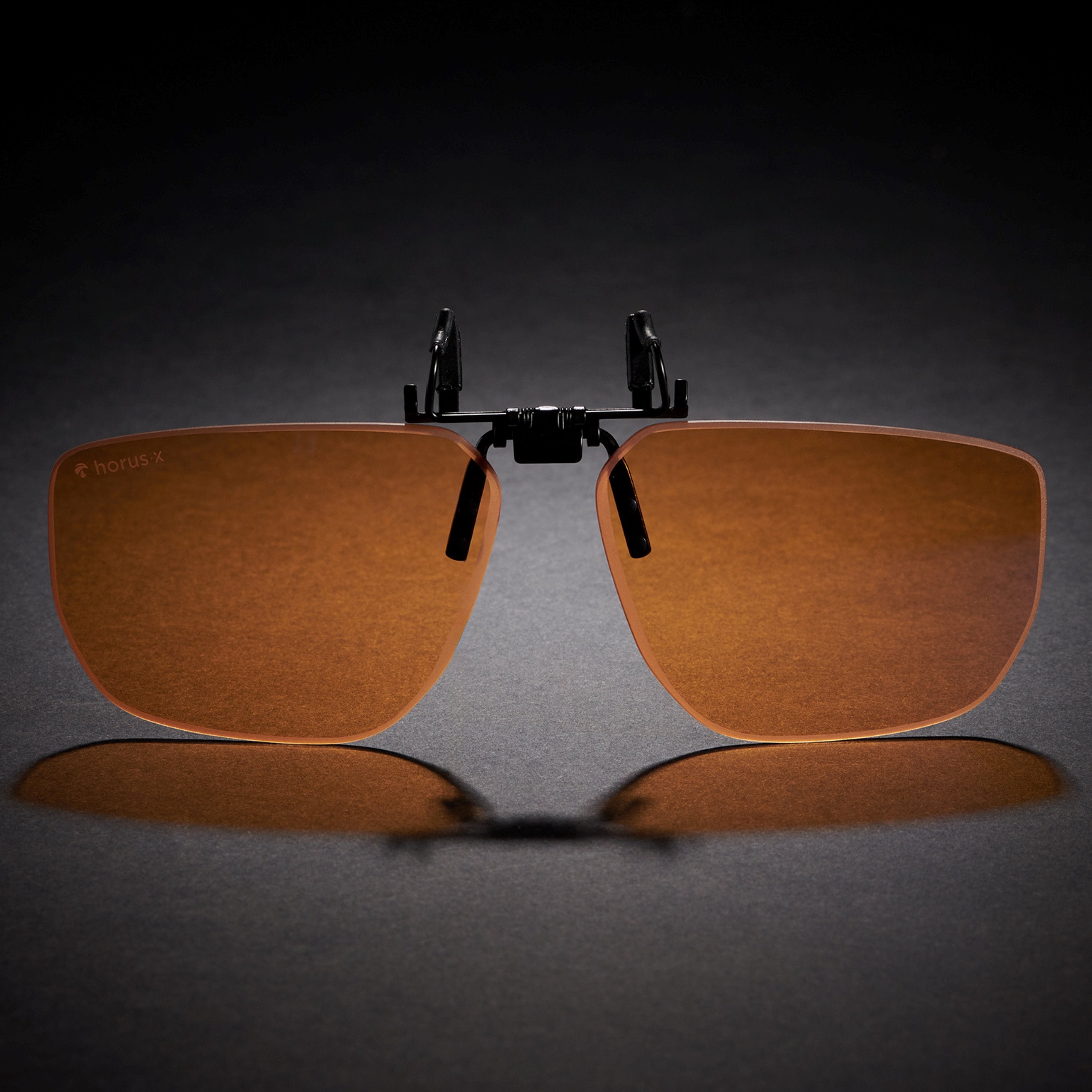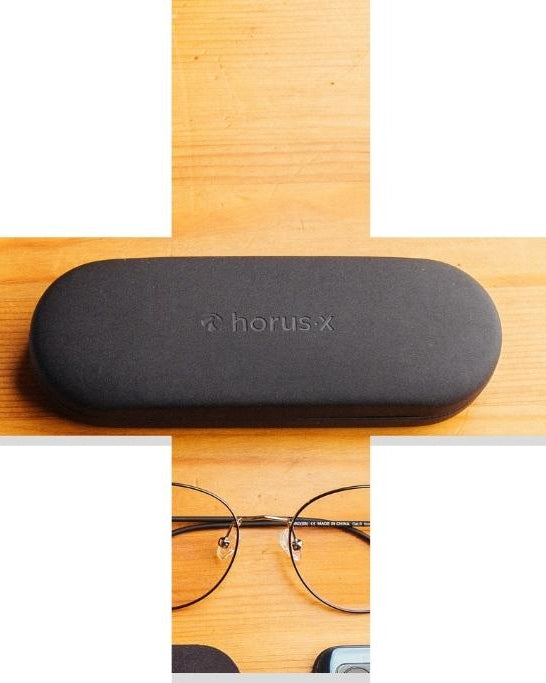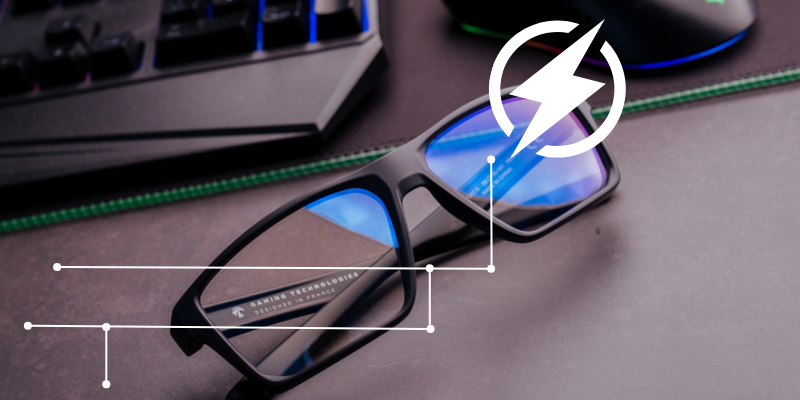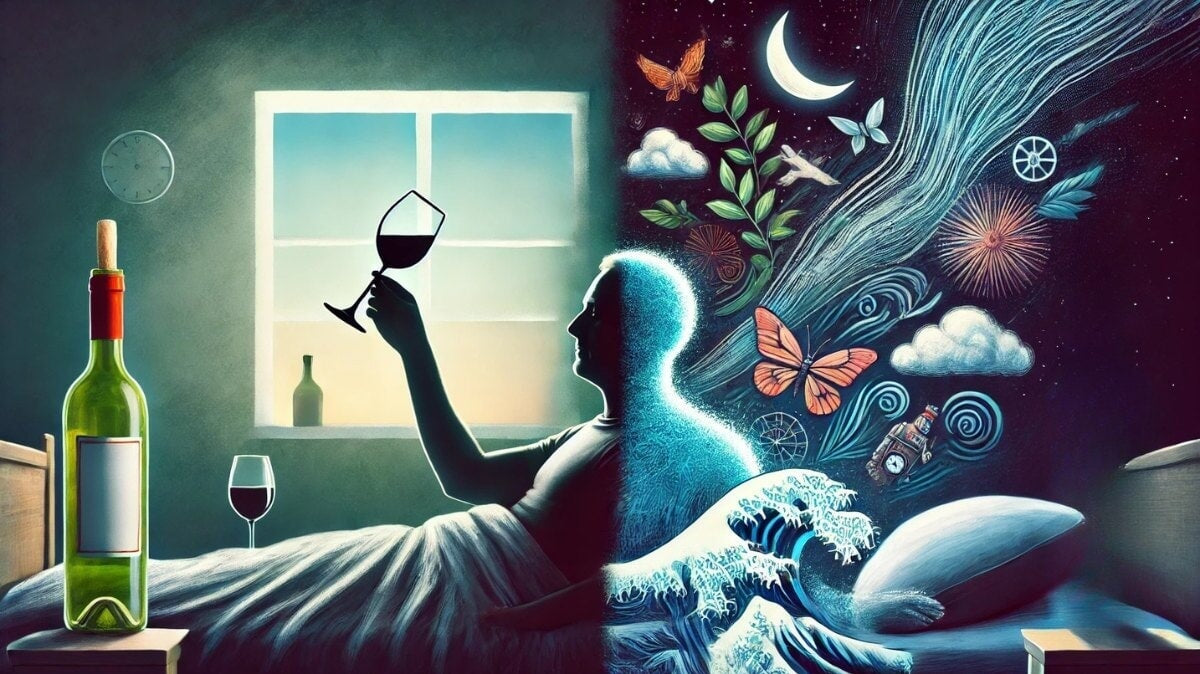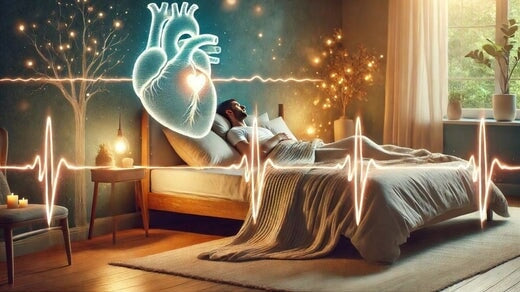Everyone knows how important it is to get a good night’s sleep and not stay up playing Tears of the Kingdom until 3 am. You know who you are.
Even those who struggle with a sleep disorder such as insomnia, or like to use quirky phrases like “I’ll sleep when I’m dead” understand (deep down) how much sleep impacts your health and overall quality of life.
That’s why learning how to improve sleep quality with research-backed, proven techniques can benefit everyone, whether you’re a night owl or early bird.
The complete toolbox for a good night’s sleep
To sleep is to escape from life’s trials and tribulations. A good deep sleep can make you feel like you’ve solved all your problems, instead of the truth that you napped to avoid them.
While we’re not recommending you run out and get a bunch of high-tech tools and gadgets to help you sleep, there are some simple changes you can make to your sleeping space to help you relax and regenerate.
Here are a few inexpensive (and some slightly more expensive) tools to help improve sleep quality:
- ⌚️ A sleep tracking device or app (Oura, Apple Watch...)
- ䷣ Blackout curtains and/or sleep mask
- 🔇 A quiet room or constant sound volume
- 🛏 A comfortable mattress that’s not too soft (if it’s a fancy thermoregulated mattress then that’s even better!)
- 💨 A cushion to support the head and keep the spine straight
- 🩳 Appropriate clothing (light, not too tight)
- 📲 Relaxation app (We recommend Headspace, or Calm)
- 🤓 Blue light blocking glasses to block light that will disrupt your circadian rhythm at night
How to improve sleep quality: Our 10 top tips to optimize your sleep space
1. A key factor: Light

Nothing is more important for our body than light to regulate our sleep-wake cycles (also known as circadian rhythm). And so, to sleep better, learning to regulate your exposure to light is key. Unfortunately, it's not as simple as it seems, especially for those of us who fall asleep with the TV blaring the latest Marvel news.
Thanks to technology, us humans are actually living backwards.
☁️ Many of us work in offices, which means we don’t get much exposure to natural light during the daytime. Some more dystopian offices don’t even have windows so you can really feel like the cast of Severance.
On top of that, we also deprive ourselves of darkness in the evening and night by flashing the bright lights of the TV or computer screen in our faces.
Basically, we’re messing all our bodies sensors up. Our bodies are equipped to naturally follow the day-night cycle and are informed by the changing light throughout the day. That’s why at night our bodies produce more melatonin, the sleep hormone, to prepare us for bedtime.
By staring at screens all evening, we’re exposing ourselves to a ton of blue light which impacts the production of the sleep hormone by telling our body we’re trying to stay awake. So, thanks to blue light, less melatonin is excreted at night than should be.
Luckily, there are solutions to improve sleep quality.
During the day make sure you expose yourself to natural daylight for as long as possible. Once it gets dark try to expose yourself to less artificial light and stay in the dark whenever possible. Channel your inner vampire energy and follow these suggestions to improve your sleep quality:
🌅 Make sure you get 2 to 10 minutes of sun when you get up: Bright light helps stimulate cortisol production and will make you feel more awake and productive. We often talk about cortisol in a negative way, but this hormone is naturally present and necessary for the proper functioning of your body.
🏋️ ♀️ A small amount of exercise in the mornings triggers a mechanism that signals to the body that it's time to be active, again activating our biological clock.
☀️ Get 30 to 40 minutes of natural light in the morning. We don’t mean stand staring through a window – actually get up, and go outside.
🤩 Avoid sunglasses in the morning. But also, don’t blind yourself. If the sun is particularly intense then ignore this advice and put on a pair of Horus X’s sunglasses instead.
🫣 Start reducing your exposure to light in the late afternoon. From about 6pm, or whenever the sun goes down, try and go down with it and start limiting your exposure to both blue and artificial light in the evenings.
😎 Reduce exposure to bright lights 3 hours before bedtime. We recommend trying dim, ambient lighting or blue light glasses to help encourage melatonin production at a reasonable time.
🏮 Avoid any light in your bedroom. Turn off the TV and learn to sleep as your ancestors did – in the dark.
⚠️ Absolutely avoid any and all light between 11 a.m. and 4 a.m. Think like a vampire and stay in your coffin bed. If you do need to get up to go to the bathroom, let the dog out, or check why no one else is following your fabulous new bedtime routine, keep lighting dim and use red lights or blue light blocking glasses wherever possible.
2. Consistency is key: fix your sleeping schedule

Our body works like a machine with complex mechanics regulated by a biological clock. Like flesh-driven robots. Or Sheldon Cooper.
🕰 To get your body into a good rhythm, you need to wake up and go to sleep at the same specific time each day.
This used to be way easier, but thanks to the introduction of Netflix and gaming, we’re up binging or playing until the early hours of the morning; ruining our natural sleep schedule and resulting in poor sleep.
The best fix is:
👉 Set a bedtime schedule and respect it as often as possible. You’ll be surprised to see that after a few days, your body will be so used to it that you will start to feel tired systematically around the same time. And you can catch up on The Last of Us anytime.
3. Regulate your bedroom temperature

Whether you’re a heat seeker or prefer to sleep as though you’re encased in ice, the temperature of your room plays a surprisingly large role in how good the quality of sleep you get is.
First, bad news for heat seekers, but a cooler internal temperature mimics the natural pattern of evenings in comparison to daytime, and is essential for reducing core body temperature. Usually, a person’s ideal temperature is around 16-18 degrees for most adults.
📉 Then, to fall asleep, your body temperature must drop by about 1 degree Celsius.
This happens naturally but you can help it along. If you’re looking how to improve sleep quality, this is a surprisingly key factor and is also luckily easy to manipulate. A hot bath, shower or sauna before bed will raise your natural body temperature, causing a faster but also natural drop once over, artificially creating the ideal conditions to prepare your body for sleep.
Make sure you:
- 👉 Adjust room temperature around 18 degrees Celsius
- 👉 Create a temperature drop by taking a hot shower that first raises and then quickly lowers your temperature.
- 👉 Use a thermoregulated mattress or mattress top.
4. Exercise: The natural relaxant

For a lot of us, exercise doesn’t feel very relaxing. For some it involves a lot of swearing and praying to a deity for it all to be over. But regardless of how you feel about exercise, you do always feel good after, and it has a large, positive, impact on your ability to sleep.
Your body is a machine created to move. It is the product of millions of years of evolution that allows us to move over long distances with remarkable endurance. So even if you’re now slobbing out on a comfy sofa, your body is raring to go and needs exercise in order to function optimally.
Exercise actually has the following benefits:
✅ Improves sleep quality
Physical activity increases the time spent in deep sleep (known as REM sleep), the most physically restorative phase of your sleep cycle. Deep sleep helps boost immune function, support heart health, and control stress and anxiety.
⏳ Increases sleep time
Physical activity makes you expend energy and helps you feel more tired and ready to rest at the end of the day. Research indicates that regular exercise can help increase the duration of sleep, in addition to its quality. But this is important: playing Madden NFL doesn’t count.
🧘♂️ Reduces stress and helps you fall asleep faster
Exercise is a powerful remedy for anxiety. Incredibly, even five minutes of exercise is enough to trigger anti-anxiety reactions in the body and overall improve mental health.
Exercises like yoga can help calm the parasympathetic nervous system, which will help you relax. These exercises can help lower cortisol levels and blood pressure, while also having positive effects on mood.
5. Food: Quantity, quality and the best time to eat

I love food. You love food. We all love food a bit too much. Thanks to Uber Eats and Deliveroo you can pretty much get whatever you want, whenever you want. But that’s actually not helping to improve our sleep quality.
The closer a meal is to bedtime, the more it will impact your ability to fall asleep and have a good quality night’s rest. So, try to eat earlier.
⌚️ Eating earlier improves sleep quality
The absolute ideal space of time, although not easy to achieve, is to have dinner no less than 3 hours before going to bed.
This gives your body plenty of time to digest your food so it doesn't disrupt your sleep, but still leaves enough time so you don't go to bed hungry. It also gives acid reflux sufferers time to avoid symptoms before bed.
A subtle but impactful negative side effect of eating late is also that the body temperature increases, which naturally disrupts your sleep rhythm, as we’ve already covered.
🪶 Eat better and lighter
The quality and quantity of the food you eat for dinner will obviously have an impact on your sleep. At night try to avoid heavy, stodgy food, instead sticking to lighter meals that are easy to digest. We recommend following the gamer’s diet which is perfect for improving sleep quality.
No one is saying never eat cheese again, but maybe try to avoid it at night and instead stick to balanced meals with more protein (a little chicken with vegetables) than carbohydrates (potatoes, bread, etc.).
How to improve sleep quality with your diet:
👉 Stop eating within 3 hours of going to bed
👉 Prioritize satisfying foods, high in nutritional density, low in calories and easy to digest.
6. Aim for better hydration and less alcohol

Proper hydration allows for your body to function at its optimum. Be careful how many pints of water you’re busy guzzling down though as there is such a thing as too much water.
➕ Too much and you risk getting up several times and interrupting your sleep.
➖ Too little and you risk disrupting the functioning of your brain and impacting your night's sleep.
Knowing how much water to drink can be tricky as it can vary depending on temperature and ambient conditions.
The ideal formula for the majority of us:
👉 The general rule is to aim for about 2.4 liters of water before 10am (about 236 milliliters of water per hour on average).
Why then? Well, your kidneys are actually working at full capacity during this period and slow down after.
📉 The goal is to reduce your water consumption in the evening so you don't have to get up at night while staying hydrated: 150 ml would be ideal (obviously if you're thirsty or it's hot, drink more rather than dehydrate yourself).
An important note:
Avoid drinking water too quickly. The same volume ingested faster will tend to come out of your body faster. If you instead drink gradually throughout the evening, in small sips, you’re less likely to wake up and run to the bathroom.
Note for athletes: When you play sports, you need more water, but there’s an easy way to remember how much is a good amount: multiply your weight in kg by 2ml of water and drink that much every quarter of an hour.
What about alcohol?
There’s no harm in occasionally enjoying an alcoholic beverage or two. But as all those who like to drink know, too much is a bad thing. You might be likely to fall asleep faster (if your head isn’t spinning too much), but its also more likely your sleep is negatively impacted by the effects of the booze.
🧠 Alcohol knocks out your cortex and makes you lose consciousness faster but the sleep you have is less natural.
You’re also more likely to wake up more and have less restorative sleep after a few drinks.
💭 Finally, alcohol blocks a good part of REM sleep, which is when you dream.
For better sleep, drink less.
7. The little-known impact of caffeine

Of course, we’re not referring to the obvious impact of caffeine which is to get you up and buzzing like you’ve just met Mario in real life.
It’s also not the “don’t talk to me until I’ve had my morning cup of Jo” impact of caffeine we’re referring to.
Although there is a simple explanation for why that occurs.
💥 Caffeine blocks adenosine receptors (which are responsible for the drowsiness signal in our brain). It’s useful in the morning, much less so when you want to sleep.
As caffeine can have particularly harmful side effects and seriously impact our sleep quality, there are 3 important things to understand.
🙀 Caffeine is an anxiety-inducing stimulant
Not only is caffeine a stimulant, but it’s also an anxiety-inducing substance. This means that while it allows you to function a little more efficiently even if you haven't had a very good night's sleep, it also increases the feeling of anxiety. If you’ve had 12 cups of coffee and can’t stop focusing on a minor mistake you made three weeks ago – that’s probably why.
Of course, too much caffeine therefore equals more anxiety and less ability to focus and be productive in our working day.
⏰ Caffeine has a long lifespan in your body
The second thing to know is the lifespan of caffeine in your body. When you drink a cup of coffee, it takes about five to six hours for your body to eliminate half of it. It takes 10 to 12 hours to eliminate 3/4 of it.
This means that if you drink coffee at 1pm (as many of us are used to), around midnight, there will still be a quarter of the amount of caffeine you ingested earlier in the afternoon! Not ideal if you're already struggling with your sleep.
😴 Caffeine negatively impacts your sleep cycle
Caffeine destabilizes your sleep, whether you like it or not. For those who are more sensitive, it will be harder to fall asleep and stay asleep due to increased sensitivity to the slightest movement, sounds or your pet trying to get your attention.
But it goes further. Absolutely everyone is impacted by caffeine, even your friend who lies boasts about drinking two espressos right before bed.
The truth is that caffeine has an impact on your deep sleep, especially two hours after falling asleep. A study conducted by Matthew Walker, an American scientist specializing in sleep, showed an average reduction of 30% in deep sleep if coffee is drunk in the evening! You won't realize it, but the impact will be real and lasting.
Horus X’s recommendation to improve sleep quality:
👉 Avoid drinking caffeinated drinks in the afternoon.
8. Sleeping together: Reduce disturbances from your partner

When you sleep with someone else it can sometimes be difficult to have an optimum night’s rest.
Between different bedtimes, snoring and contemplating the murder of your oblivious partner it can be hard to fall (and stay) asleep.
It’s even scientifically proven! When we sleep as a couple, we sleep a little less well.
For many, this is not a problem because the trade-off is a feeling of well-being and security that’s more than worth it. Still, it would be nice to have that feeling without your partner’s breath in your ear.
There are some ways you can improve your sleep quality even with a partner.
🛏 ⎸ 🛏 The most extreme case: bedroom divorce!
You can love someone and sleep separately. It’s quite an extreme decision, but sometimes it can be to the benefit of the couple and actually help the relationship last longer. Particularly if you can get away from their snoring.
It may seem weird but everyone is different, and in some cases separate sleeping has actually saved relationships that co-sleeping was giving the kiss of death to.
It also means you don’t need to stop the little gestures that matter. If you and your partner like a little kiss and a cuddle (or a larger “kiss and a cuddle”) before bed, then you can still do that before departing to your respective rooms.
🛏 🛏 Hybrid solution
Twin beds like it’s 1965. This helps alleviate a lot of concerns and fixes issues between partners who need different mattress types, move a lot in their sleep or are generally just annoying to be around at night.
9. Reducing anxiety improves sleep quality

Sleep and anxiety go hand-in-hand as well as cheese and cement. In other words, they don’t. Anxiety is one of the foremost determining factors in disrupting sleep.
One of the key impacts of anxiety is insomnia or other sleep disorders. Especially in those genetically predisposed to anxious behaviors.
People with anxiety and insomnia often struggle with falling and/or staying asleep.
These difficulties are linked to a disruption of the rhythm of cortisol release via the sympathetic nervous system (which is very badly named).
These difficulties often disrupt the rhythm of cortisol release via the sympathetic nervous system (which ironically… not too sympathetic to an insomniac’s plight).
There are things you can do to help, although of course anyone struggling should always consult their physician first and foremost.
One of the most effective things you can do though is exercise! It’s a natural antidepressant and can help reduce stress.
We also recommend meditation as along with improving concentration, it’s a top way to lower your anxiety, and improve both your mental health and sleep quality:
🧘♀️ Meditation improves your state of mind: Focusing on the present moment during meditation can help you think less often about the past or the future and soften your reactions to difficult experiences.
💨 Meditation slows down your breathing: Focusing on calm, deep breathing using the diaphragm is one of the main ways meditation reduces anxiety
❤️ Meditation reduces your heart rate and blood pressure
🚭 Smoking a joint to fall asleep is not a lasting solution:
Quite a few of us use a little weed to help us sleep. But current research tells us that this is not as good an idea as you think it is.
That’s because cannabis contains two substances:
THC (Tetrahydrocannabinol): the psychoactive component (which will get you high)
CBD (Cannabidiol): the non-psychoactive component
The main issue is the THC:
🥱 It can make it easier to fall asleep BUT it blocks paradoxical (REM) sleep which is essential for good sleep (less paradoxical sleep, later at night and change in intensity).
♽ Unsurprisingly, it’s also very addictive. Once you use it to fall asleep, it becomes difficult to fall asleep without it.
📈 And we develop a tolerance (it takes more and more to be effective).
It’s also difficult to STOP using, as the immediate short-term impact is that your sleep is even worse and more disturbed, encouraging you to keep using your night time joint as a sleep aid.
A lesser-known fact about CBD is that at certain doses it can actually promote wakefulness rather than sleep.
If we had to recommend one of the two, CBD seems to have more positive effects, but the research is still too limited to be able to recommend it with certainty for its effects on sleep.
If you’re looking for a different helpful but still fun sleep aid, then look no further than…
🍆🍑 Less smoking and talking, more getting it on between the sheets
Getting intimate before going to bed actually drastically increases the speed of falling asleep (if orgasm is achieved). This is also the case if you’re going solo, speeding up your ability to fall asleep fast by 47%!
Although not well researched yet, initial studies tend to show the important role of certain hormones on this phenomenon (probably oxytocin for women and vasopressin for men).
We don’t know enough yet to confirm, but it seems like intimate time before bed can help stop the sympathetic system in favor of the parasympathetic system.
Be careful if you're looking for some inspiration on your screen though and don't forget your blue light gaming glasses 😉
10. Using supplements or medication to improve sleep quality

Melatonin
As we’ve covered, the production of melatonin is what lets you get a good night’s sleep. It’s naturally present in the body but you can also take melatonin supplements for that extra boost.
HOWEVER, we don’t actually recommend this. Its use in supplements is not yet well understood or mastered. It also could potentially negatively impact other parts of your body such as heart, immune system or bones. In short, until more research is done, it may be best to step away from the melatonin supplements.
Other medications
No drug or medicine can completely reproduce a natural restful sleep. After taking sleep medicine the electrical frequencies of the brain are different when asleep to when not taking meds.
What’s worse is the potential side effects and health risks that come along with this. Current drug treatments are not effective and require further study before we think they’re appropriate to recommend to those struggling with how to improve sleep quality.
Update heard on Peter Attia's new book :
- He uses Trazodone for some of his patients with fairly good results
- He has also had success with supplement ashagandha
How to improve sleep quality: Final thoughts
You can’t deny it, good sleep is essential.
Beyond the fact that bad sleep makes us feel almost worse than an evening ending in the gutter, a lack of sleep can have real repercussions on your overall health.
This handy little guide gives you the top tips (and most easy to implement) to improve your sleep quality.
At the same time, if none of this seems to work for you then its worth digging a little deeper and consulting a physician who can help ensure there’s no underlying issues.
Final tip: Night workers can use apps like Timeshifter that helps adapt behaviors to minimize the impact of your natural sleep cycle being disrupted.





